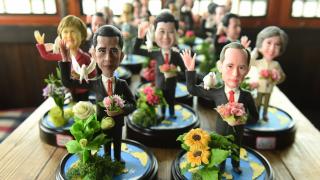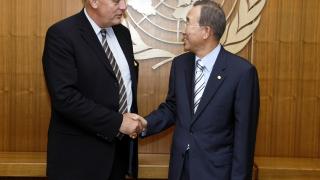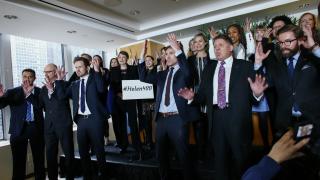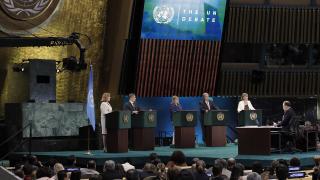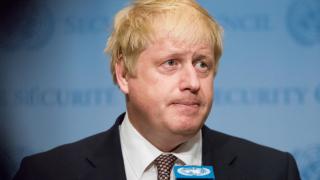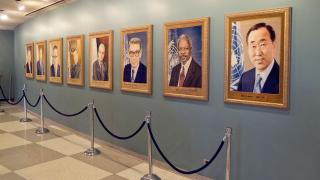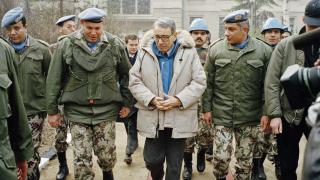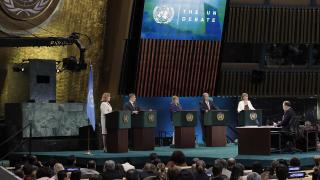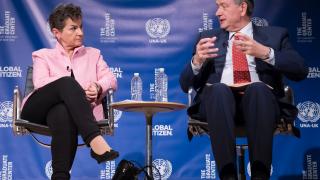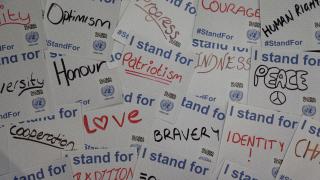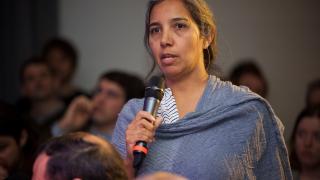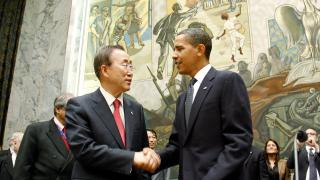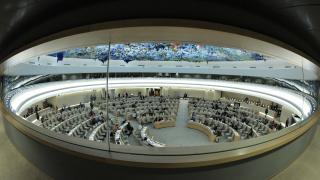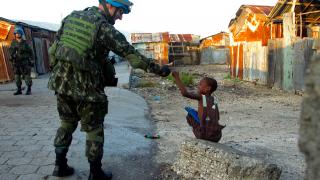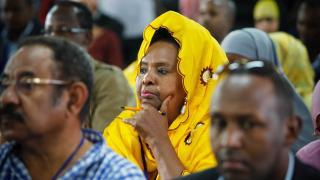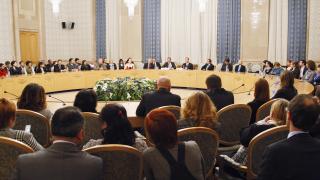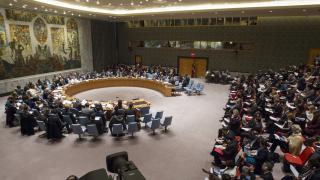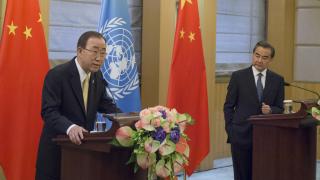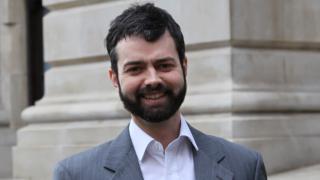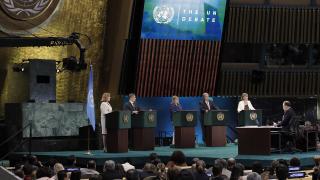
For the most part, candidates chose to play it safe in their vision statements, which are peppered with platitudes and buzzwords such as “prevention”, “partnerships” and “principles” but little detail. Below New World lists 10 things we wish they had said.
1. It’s not me, it’s you
The biggest problem facing the UN is not a lack of reform. It’s member states. The UN’s built-in catch has always been to reconcile its long-term goals with the short-term interests of its members. But in recent years, there has been a visible retreat as states have turned inwards to their domestic constituencies, pursuing ever-narrower national agendas. The patterns of polarisation that were visible in the lead-up to the First World War are becoming noticeable. So too are the populist trends that led to the second.
2. Especially you, P5
Poor relationships among the big powers are of particular concern, as their sabre-rattling has seen tensions rise in Eastern Europe and the South China Sea. All permanent members of the Security Council appear to be going through the state version of a mid-life crisis. This will be a key challenge for the next Secretary-General.
3. I can’t be everything to everybody
An inspiring communicator. A competent manager. A visionary leader. A smooth negotiator. A bold reformer. All these qualities are important but the Secretary-General cannot be everything to everyone at all times. Shouting from the bully pulpit 24/7 will not help a Secretary-General to build trust behind the scenes. An outreach-focussed Secretary-General who takes the UN on the road cannot also mastermind technocratic reforms. Given points (1) and (2), the UN chief should focus on diplomacy and appoint a good team to do the rest.
4. Where's my Doug Stamper?
Key appointments: fixers. The next Secretary-General should have a couple of attack dogs, like Doug Stamper from House of Cards or Malcolm Tucker from The Thick of It (minus the killing and, possibly, the swearing) to help build consensus and get tough decisions through. Alternatively, member states could refrain from proposing politicised and poorly qualified candidates for senior roles.
5. Comms, comms, comms
More engagement, openness and transparency: good professional communications are essential if the UN is to become “fit for purpose”, to use the phrase adopted by several states in the dialogues with candidates. Above all, this needs money, to be invested inhouse and externally for forthright media engagement, information campaigns and coordination, so that the agencies with public-friendly mandates don’t steal all the limelight.
6. Show me the money
And while we’re on the subject: some things need money. The UN cannot always do more with less. There is a breaking point, as UN humanitarian agencies – forced to suspend life-saving assistance due to funding shortages – know only too well. The next Secretary-General should be honest in explaining the consequences of financial squeezes and force prioritisation if needed.
7. There’s more to gender equality than parity at senior UN levels
It’s great that candidates have been putting so much emphasis on improving gender balance in the UN Secretariat. But the extent to which this will make a tangible difference to the lives of half the world’s population is debatable. The next Secretary-General must do better and push for broader change within and outside the system, including for more political and financial support from states. She or he must be a proud and proactive feminist.
8. Honesty
The Secretary-General can be a useful scapegoat, helping states not to lose face when seeking peace, for example. But she or he should not take the rap when countries and the public react badly to UN decisions. When a dictator is selected to give a UN prize or a gross abuser given the chair of a human rights body, the UN should say: “This has been done by member states.” Again and again. Loudly, so that journalists hear.
9. More honesty
A key part of the Secretary-General’s role should be to tell it like it is. Take climate change. Does the amount of media coverage reflect the level of urgency? Or migration. Do politicians give us the facts or do they pander to vocal sections of their electorate? The Secretary-General should not shy away from imparting hard truths and providing thought leadership.
10. Still more honesty
Finally, the Secretary-General must be honest about the UN’s constraints and limitations. She or he should recognise that while the international system has brought stability and prosperity for many states and people, it has not delivered for everyone. The system will not survive unless we actively work to strengthen it. This means ensuring that it works for all people, so that we all have a stake in a stronger, more effective UN.
Photo: (c) UN Photo/Evan Schneider

